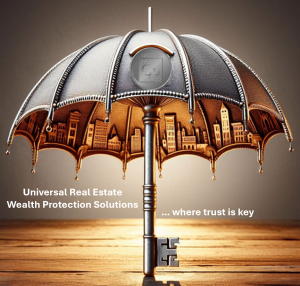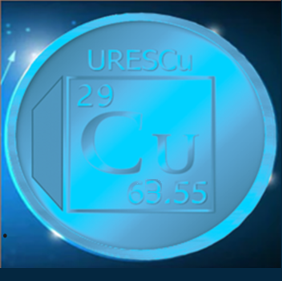
Distributed Regional Affiliates (DRA) and local real estate investors (REI) are vitally important to fulfilling our mission.
If you would like to know more, please contact us.
From the UREWPS™ Business Plan
“The problem with real estate is that it’s local. You have to understand the local market.” – Robert Kiyosaki
The Distributed Regional Affiliate companies (DRA, Affiliate) are essential to the mission of UREWPSTM. The DRA provides partnership funding for real estate investing companies of all sizes.
To this end, Affiliates are established and given tightly controlled access to liquid assets in the Company treasury to facilitate the formation of joint ventures (JV) between the Company and real estate investors (REI) in various localities. To compensate the Affiliate for fulfilling its role(s) within each JV, the Company shares with each Affiliate some of the revenues due to the Company as the capital partner and some of the equity shares due to the DAO. To find out how you can become involved in this critical activity contact us.
THIS IS NOT A SOLICITATION TO BUY SHARES IN A DRA. ANY SUCH SOLICITATION WOULD BE ACCOMPANIED BY ALL DISCLOSURES AND ADDITIONAL INFORMATION AS REQUIRED UNDER US SECURITIES LAWS. MATERIALS PROVIDED HERE ARE INFORMATIONAL ONLY.
DRA Ownership
All deals must come to the Company through a DRA and must meet the specified and stringent criteria. Anyone can bring deals to a DRA or provide services to a DRA. However, membership in a DRA is limited, by US securities laws, to Accredited Investors.
At inception, each DRA is a wholly owned subsidiary of the Company. As such, the Company owns all of the Governance Tokens (shares) of the Affiliate.
One member of the Company Board of Directors is appointed to lead the establishment of each DRA. Which board member depends on the availability of the Director and the geography of the DRA. The Company grants 14 tokens (approximately 18% ownership) to the Company Director taking point on the creation of the Affiliate. Additionally, up to 7 tokens (approximately 9% ownership) may be granted to each Director or other officer of the Company assisting in standing up the Affiliate. Directors are allowed to sell their Affiliate shares at any time. Proceeds from the sales of all other Affiliate shares are contributed to the UREWPS™ treasury. A portion of the sales of Affiliate shares will be allocated back to the respective DRA to fund certain administrative expenses needed to firmly establish the DRA as a going concern. The Director on point holds the voting proxy for all unsold DRA shares.
DRA Operation
Affiliates created by the Company will be fully decentralized, simple, pure, and subject to the limited liability company or DAO laws of their state of incorporation. Initial control will come from ownership portions of the Directors and the Company.
Affiliates receive valuable financial incentives from the deals they facilitate. Each DRA receives a flow of income from fulfilling its role in the JVs.
Every CuBitDeal™ involves four partners in the JV.
Partner #1 is the real estate investor (REI) who has found a great real estate deal and needs funding to make it happen. The REI brings the deal to the DRA (Partner #2).
Partner #3 is UREWPS™ (the Company). Acting on behalf of the DAO, the Company evaluates the deal presented by the DRA and accepts, rejects, or modifies the deal. When the Company accepts a deal it puts the DAO into the deal as the funding partner (Partner #4), with the Company as the Managing Partner.
Partner #2 is the DRA. Members of the DRA verify and validate the deal the REI is presenting. They may coach the REI on how to structure the deal to make it better. They may also decide that the deal is not suitable for referring for funding. When the DRA decides a deal is worthy of funding, the DRA refers the deal to the Company (Partner #3).
Partner #4 is the DAO as the Funding Partner. Through the Company, the DAO provides the capital to make the deal happen. In most cases this will include covering the costs of both acquisition and repairs (if needed). Risk management policies of the Company, agreed to by the DAO, limit the amount of capital invested to 70% of the estimated after repair value (ARV) or less.
The REI: Partner #1
Any legally incorporated entity, or incorporated individual, may bring deals to a DRA for consideration. If the deal is accepted, the REI will bear the responsibility to carry out all the work required to bring the deal to a successful conclusion. The REI is the “Operating Partner.”
The DRA: Partner #2
Both the Affiliate and the Company assess and validate all deals for suitable financial partnering and profitability. Because the DRA Members are local to the deal, they are expected to personally visit the subject property and perform all appropriate verifications and validations for the life of the deal. This means that they are directly engaged is ensuring the financial and operational plan for the deal is sound, the subject property is as-presented in the documentation, and the REI is capable of their part in deal. Additionally, as the deal moves through its life-cycle, the DRA remains engaged to verify and validate that the operational and financial plans are carried out per the deal proposal. If there are deviations, the DRA works directly with the REI to resolve them and keep the deal on track.
Significant deviations from the plan and from results are laid at the feet of both the REI and the DRA in the form of a reputational score maintained by the Company. The relevant reputational scores are used by the Company to adjust the terms of each deal which are embedded in the JV. The most common effect of changes in the reputational score is a change in the proposed sharing of profits from the deal. If scores go too far in the wrong direction the result can be a rejection of an REI as a partner in any deal. For a DRA it can result in the legal dissolution of the DRA.
The Company: Partner #3
Once verified and validated by the DRA and packaged by the Company, the DRA and the Company will vote to accept or reject the deal. If accepted the Affiliate will transact the deal, acquire the deed into the trust on behalf of the JV. The Company tokenizes[1] the deed on TWPRR™ and converts the JV and the property trust (the Trust) into smart contracts. The Trust is put on a private chain while the Trust ownership interest will be recorded on the TWPRR™ chain and with the local municipality. Appropriate and necessary facts or references to the deal and associated NFT are linked to the CuBitDAO™ Asset Ledger. Tokenizing the elements of the deal effectively automates many of the contractual functions, thus reducing administrative costs and increasing certainty, transparency, and reliability.
The Joint Venture
To clarify, when the Company forms a JV with all the identified partners this includes articles of incorporation, an operating agreement and all other relevant corporate instruments needed to legally establish the JV. As a matter of law, the operating agreement stipulates the responsibilities and rights of each partner in the JV.
Failure of one of the partners in the JV to fulfill their obligations may result in the involuntary expulsion of the defaulting partner from the JV. The agreement stipulates how ownership interests and obligations are realigned in such an event.
As noted previously, the Company is the Managing Partner of each JV.
The Trust
At the same time the JV is formed, the Company forms a trust (the Trust) which is specific to the property involved in the deal (the Subject Property) and the JV. Money to purchase the Subject Property is deposited into the Trust by the Company (on behalf of the DAO / Partner #4). When the property is acquired, money from the Trust is used to buy it and ownership of the Subject Property is held in the Trust.
Every Trust has the Company as the Trustee and the JV as the beneficiary of the trust.
Smart Contract Summary
Each CuBitDeal™ generates an assortment of real-world legal agreements along with their digital twins on a blockchain as follows:
1) The legally required documents for a limited liability corporation (LLC) as a joint venture between the respective partners and smart contracts to automatically execute the terms of the JV
2) Legally recognized trust agreement along with a smart contract to automatically execute the terms of the Trust
3) Legally recorded ownership documents in the relevant jurisdiction and an analogous non-fungible token (NFT) on TWPRR™ representing the ownership interests in the Subject Property
These blockchain tools reduce administrative costs, increase transparency and reliability while protecting the rights and enforcing the duties of all the parties to the deal.
Going Rogue
Rogue Affiliates – it is possible to lose control of a DRA at which time a DRA may decide to start soliciting and taking offers directly and without UREWPS™ participation. If UREWPS™ determines that an Affiliate is no longer eligible for funding from the Company, the notification will trigger a clause in the Affiliate charter which will liquidate and dissolve that Affiliate.
[1] Tokenization is the process of creating a smart contract or other non-fungible token on a blockchain to exist as a digital version of the real world item.


